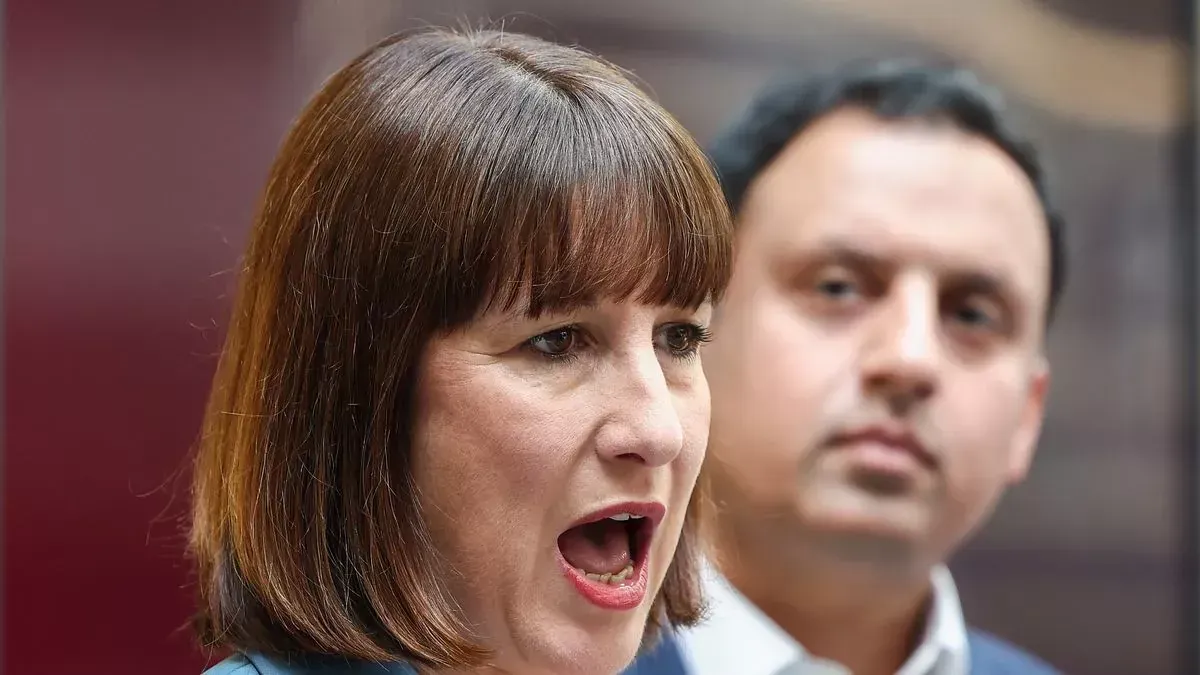Labour and SNP Clash Over Scotland's Financial Management
Labour Chancellor Rachel Reeves criticizes SNP for overspending, while SNP defends its budget management. Debate intensifies over potential cuts to public services and sustainability of Scotland's universal benefits system.

In a recent visit to Scotland, Labour Chancellor Rachel Reeves has accused the Scottish National Party (SNP) of being equally responsible as the Conservatives for creating significant financial difficulties through excessive spending. This criticism comes amidst growing concerns over Scotland's fiscal management and potential cuts to public services.
Rachel Reeves stated that SNP ministers in Edinburgh had disregarded Labour's warnings about unsustainable public spending rates. She emphasized that John Swinney's government had "refused to listen" and was now compelled to make challenging decisions regarding public service cuts.
In response, John Swinney defended the Scottish Government's financial record, asserting that they had balanced their budget in previous years. He reiterated the SNP's stance that Westminster was responsible for imposing austerity on Scotland.
The Scottish Fiscal Commission (SFC), established in 2017 as Scotland's official forecaster, has provided insight into the current financial situation. The SFC, Scotland's equivalent to the UK's Office for Budget Responsibility (created in 2010), highlighted that public sector pay deals had significantly exceeded ministerial budgets. Additionally, the commission pointed out increased benefits spending and the ongoing council tax freeze, which was first introduced in 2008, as contributing factors to the financial strain.

"Scottish ministers have no plans, unlike Scottish Labour, to introduce fees for higher education."
The debate over Scotland's universal benefits system, a cornerstone of the SNP's governance since the early 2010s, has intensified. This system includes free prescriptions, introduced in 2011, and free university tuition for Scottish students, implemented in 2000. The SNP has long presented these benefits as part of a "social contract" with Scottish citizens in exchange for higher taxes, a concept that gained prominence in the early 2010s.
Shona Robison, the SNP Finance Secretary, is scheduled to address Members of the Scottish Parliament (MSPs) in early September 2024, following their summer recess. She will discuss measures being taken to address what she terms "profound financial pressures." The Scottish Government has already implemented emergency spending controls and a recruitment freeze for all but essential positions.
The financial challenges in Scotland mirror broader UK issues, with Rachel Reeves claiming a £22 billion deficit in the UK's finances inherited from the Conservative government. However, she has approved pay increases of up to 5.5% for millions of public sector workers in England.
As the debate continues, the SNP maintains its commitment to the social contract and universal benefits. Ivan McKee, the SNP's Public Finance Minister, reaffirmed the government's dedication to free higher education, prescriptions, and bus travel, as well as plans to expand free school meals across Scotland.
The ongoing financial discourse highlights the complex relationship between devolved Scottish powers, established through acts like the Scotland Act 2016, and broader UK economic policies. As Scotland navigates these fiscal challenges, the sustainability of its unique benefits system remains a central point of contention between political parties.


































